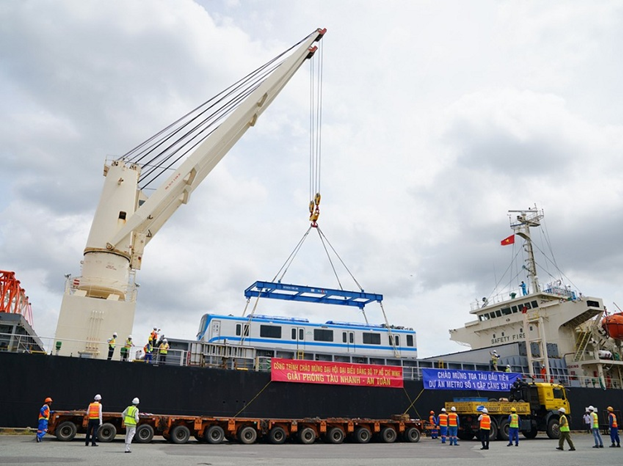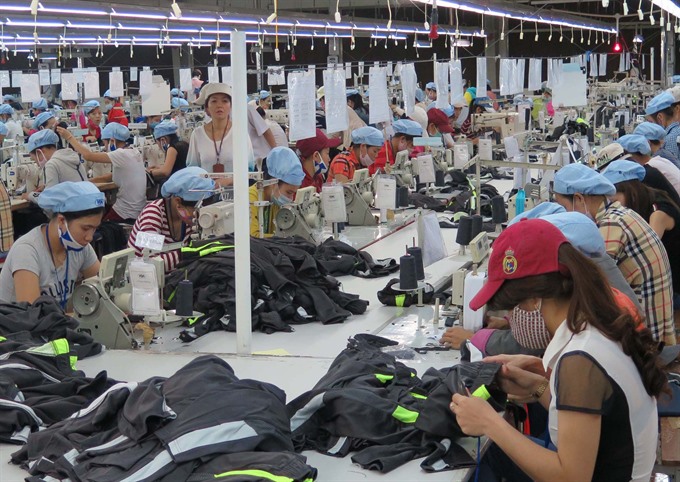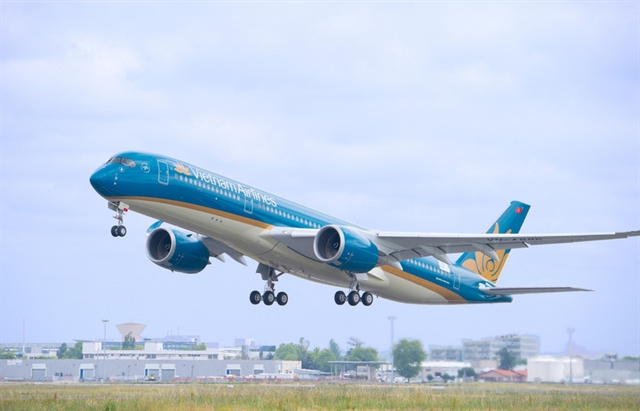 Economy
Economy

Việt Nam should strictly follow and continuously update its policies and regulations when exporting products to the US, which is considered a difficult market with rigorous requirements.
 |
| Việt Nam should strictly follow and continuously update its policies and regulations when exporting products to the United States, which is considered a difficult market with rigorous requirements. — VNA/VNS Photo |
HÀ NỘI — Việt Nam should strictly follow and continuously update its policies and regulations when exporting products to the United States, which is considered a difficult market with rigorous requirements.
This issue was discussed by delegates at a forum on Food Security titled “Market Development for Vietnamese Goods”, co-hosted by the American Chamber of Commerce in Việt Nam (AmCham Việt Nam) and the Business Association of High Quality Vietnamese Products in HCM City, yesterday.
The labour force for the agriculture, fisheries and forestry sectors, as well as the food industry, accounts for 46 per cent of Việt Nam’s total workforce and brings significant export value to Việt Nam. Evidence of this was the seafood sector’s export turnover reaching US$7 billion in 2016.
However, according to experts, Vietnamese food exporters remain passive and sluggish in complying with the demands and requirements of their target markets, especially the United States. According to the American Food and Drug Administration (FDA)’s Food Safety Modernisation Act (FSMA), the most sweeping reforms of US food safety laws, from 2016 onwards, all foreign firms exporting food and beverages for people and animals into the US market must re-register every even-numbered year.
This included registering their manufacturing facilities and representatives in the United States so that they could be issued with a new valid business codes. This task needed to be completed before the shipment arrives in the United States.
However, FDA data showed that before this re-registration requirement, Việt Nam had a total of 1,485 enterprises with valid business numbers provided by the FDA and this number had dropped to 806 in 2017 as FDA cancelled the import licences of 679 Vietnamese food and beverage manufacturers that did not re-register with the agency as required.
Mark Gillin, vice chairman of AmCham Việt Nam, attributed the drop to the failure of Vietnamese firms to promptly comply with the change in regulations. Lý Thị Tú Duyên, representative of Bến Tre Export - Import Joint Stock Company (Betrimex), said that it is not easy for Vietnamese firms to export goods to the US market as there are many strict rules.
“Vietnamese enterprises are also confused when catching up with the changes in the FDA’s new regulations,” Duyên said.
Studies conducted the Business Association of High Quality Vietnamese Products have shown that Vietnamese exports to the US have consistently encountered barriers, despite the fact that Vietnamese businesses have tried so hard to comply with the FDA’s Food Safety Modernisation Act.
As a result, more and more businesses have been named on the US alert list.
Adapt to change
Trần Việt Nga, Deputy Director of the Food Safety Department, under the Ministry of Health (MoH), said that for the management of export food, in response to the request of the importing country, Việt Nam will issue related certificates for exporting firms.
For example, in the period 2015-16, the MoH issued nearly 1,340 certificates of free circulation and medical certificates for export food products.
In the future, the MoH would continue to create favourable conditions for Vietnamese enterprises to penetrate and expand their export markets, Nga said.
Vũ Kim Hạnh from the Business Association of High Quality Vietnamese Products said that in order to help businesses meet the requirements on food safety of importing markets, the association has taken initiatives to build a new set of criteria named “High quality Vietnamese goods - Integration Standard”, which is based on Việt Nam’s legal system for product quality and compiles and updates international standards on food quality management systems.
The world’s demand for healthy animal food and tropical foods is increasing, said Ratih Puspitasari, Director of Regulatory and Scientific Affairs South East Asia and India at the Cargill Group, a US-based multinational producer of food, agriculture, financial, and industrial products and services.
She said Việt Nam needed to improve the capacity of its food industry, promoting sustainable agricultural practices and adhering to the new requirements of importers, especially the United States. There should be clear policies to promote food safety, good husbandry practices and strict control of hygiene in animal husbandry. At the same time, there should be strict regulations on the use of drugs in animal husbandry that meet international standards.
This would not only help Vietnamese firms expand their share in the US food market but also access many other large and diverse markets, she said. — VNS




